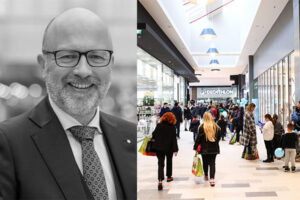By Denis Cupic
Specific region of the Balkans, foremost former Yugoslav Republics but also Romania, Bulgaria, and Albania have experienced fast changing times over the last three decades. Opening their societies to market-based economy in the nineties was slowed down by the war as well as transitional crony capitalism. In the early 2000’s, these markets opened up to the western European way of business and the expansion of international retail started. Then again, the latest recession hit these markets in 2010 and 2011 harder than the west and lasted a lot longer. The retail recovery started in 2015 and achieved break-even in 2018. 2019 was the first real game-changing year in retail on the Balkans with quickly increasing turn overs, new market openings as well as first larger refurbishments.
Unfortunately, the markets in this region seem to be prone to change once a decade and this now starts the fourth decade-changer. The effects of corona pandemic were originally noticed in the last week of February as turn-over in non-food retail started to decrease and from March 12, 2020 the non-food retail sector throughout the Balkans reported a period of no sales. Country by country, drastic measures of social distancing are being implemented, which bring new challenges to shopping centers as most of the Balkan states still allow some retailers to remain open. However, most of the tenants who are forced to close down their operations incur increasing costs to the centers, making them responsible for public health as governments, willingly or unwillingly, pass on this task mostly to the private sector, therefore create an unclear situation and force them to make decisions they are not prepared for.
Neither national nor regional council of shopping centers
The short-term effects of the pandemic will perhaps be neutralized if governments in the region start to think pro-business and reduce all state-controlled costs, like real estate taxes. Parafiscal burdens are still high in these post-transitional economies. If governments do not support business that are seriously affected by this pandemic, the economic outcome will be catastrophic. The current short-term measures will only put out the fire for public appearance. However, their approach to counter the middle to long term effects more important, but this is where governments do not think in advance. It is important to state that governments in the entire region have a tight majority and election cycles are already gearing up for 2020 and 2021. In election years, in these countries’ governments tend to focus exclusively on populistic short-term moves.
The only way out and towards future progress is for retail and shopping centers to start rethinking their positions and organize themselves in this region to speak to their governments with one united voice, as this region has neither national nor regional shopping centers councils. National retail associations are mostly not representative and governed only by food retail. This should give us momentum to organize on national levels as representative associations and further cross-border exchange with other organizations.
Some of the markets, like Bulgaria, have already started to show a slowdown in brick-and-mortar retail in last two quarters of 2019 as the population’s economic migration towards the western EU started to show negative effects. The situation in Romania is very similar. On such markets more store closures have been already announced and rent correction in malls and retail parks have already become part of correction cycle.
Revoking scenes of rationed commerce
On other hand, retail in Slovenia, Croatia and Serbia has experienced new cycle of market openings in the last two years, some of which prevented further stores from closing. However, in general retail-oriented real estate experienced a wave of ownership repositioning and acquisitions which stabilized the retail real estate market. As such, this year started out very well and optimistic, showing a positive trend in the retail sector with stable brick-and-mortar growth in comparison to e-commerce.
Now, the world of brick-and-mortar retail has come to the temporary stillstand unseen in west, but some countries of the Balkan region already experienced something similar due to the war. The current situation is reminiscent of the kind of rationed commerce these countries experienced in the seventies and eighties due to the socialist countries’ centrally planned economies collapsing as well as when struggling offer met the demand of nineties when they opened themselves to the west. People in these markets have seen and experienced situations like this, when they stood in lines in front of the stores in the not so distant past.
The short-term challenge for retail will be to ensure that local distributors and franchisees survive the time of no sales. This is when national governments will need to step in with incentives for workforce compensations. It is just as important for states to help shopping centers survive these months be reducing taxes for non-operating assets as well as granting subsidy schemes for reopenings, either as direct incentives or indirect through smart fiscal politics and cutting of the publicy controlled taxation and fees for utilities. Now is the time to prepare measures for the mid-term that will for sure be challenging for the retailers as well as landlords.
In these times of no sales seasonal goods not being sold start piling up and we witness e-commerce trying to increase its turn-over amid wide spread uncertainty. Additionally, the current logistics and distribution obstacles in EU countries do not make this situation any easier. Retailers will struggle to finance their stock for the fall collection, foremost the local and regional ones, bringing the risk of a reduced offer for brick-and-mortar stores in the fall and Christmas season that will drive more e-commerce sales but also give away a considerable share of the national purchasing power to international stores and thus reduce local revenue and income. This is why it is important to secure stable retail operations in the six months upon the reopening.
More sports and entertainment will be crucial
The malls’ most important issue will be to optimize costs in time of no sales, get the support of their government as well as financing institutions to be able to neutralize the illiquidity caused by the lack of sales. Brick-and-mortar retail and shopping centers have to use this time to prepare their back-to-life measures after their re-openings. They also have to understand that may be easy to close a store but it is incredibly hard to open one.
We will have to reinvent ourselves to offer even more experience to our now traumatized customers. We have to understand that social interaction in the first months will still be reduced and affected by the post-traumatic experience of the pandemic shutdowns. Turnovers will increase be gradually, as people will have to overcome their worries and fears and combat the possible recession triggered by the shut-down times. Communication will be the key driver to change behaviors, encourage them to spend time among others, enjoy and, what is ultimately the import thing for us, shop and spend money on more than just vitally important goods.
The consumption and willingness to buy again will be crucial in the Balkan region, even more than many other countries as rents mostly depend on revenue and are very volatile. One thing that is perhaps the fire and not only a glimpse of hope, is that nations of this region experienced major changes throughout the last decades more than other states of the EU. People may lose the inhibitions faster. Another aspect is that most of the residents of metropolitan regions in these countries still live in smaller condominiums and the shut-down time confined them to small four walls. Therefore, they may cherish their regained freedom to live outside. This may also help to increase the sports offer, arcades, and entertainment sector, in combination with indoor and outdoor activities. They will be crucial to bringing people back to our brick-and-mortar retail assets.





